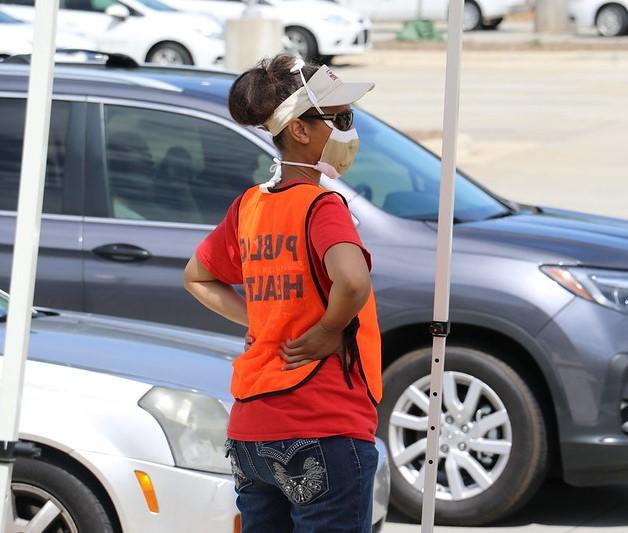The United States saw another record-setting day yesterday, with more than 48,000 new cases of COVID-19 reported, according to the New York Times.
New US cases have risen by 80% in the past 2 weeks, leading several states and cities to cancel upcoming Fourth of July celebrations.
CNN reports that at least 19 states that were progressing through reopening have now paused or rolled back plans. In Colorado, which gained praise for its early — but cautious — reopening of businesses, bars will now be closed for 30 days.
Colorado Governor Jared Polis said yesterday that his state has seen a slight uptick in cases over the last 2 weeks. Bars and nightclubs opened just over 2 weeks ago, but Polis said the state may not yet be able to open those establishments safely.
California Governor Gavin Newsom closed all indoor establishments, including restaurants, movie theaters, and bars, in 19 counties where case counts are rising. The closing will last for at least 3 weeks.
Newsom also announced today that parking facilities at state beaches in Southern California and the Bay Area will be closed for the Fourth of July weekend.
In New York City, which has successfully contained the outbreak after seeing cases soar in April and May, Mayor Bill De Blasio said he will not allow indoor dining to resume next Monday as planned after watching what is happening in other states.
Also today, the governors of New York, New Jersey, and Connecticut are now asking visitors from Alabama, Arkansas, Arizona, California, Florida, Georgia, Iowa, Idaho, Louisiana, Mississippi, North Carolina, Nevada, South Carolina, Tennessee, Texas, and Utah to quarantine for 14 days upon arrival, National Public Radio reports.
According to the tracker maintained by Johns Hopkins University, the United States has 2,658,324 cases of the virus, including 127,681 deaths.
Spike in anxiety
Americans' worries about the novel coronavirus are at the highest reported level since May, according to a new poll from Reuters/Ipsos.
A public opinion poll conducted on Jun 29 and 30 found that 81% of American adults said they are "very" or "somewhat" concerned about the global pandemic. About 70% of Republicans polled and 90% of Democrats reported rising worries. Last month, only 60% of Republicans reported being worried about the virus.
The concern spread all the way to the White House, where leaders are reportedly split over whether to resume daily briefings on the pandemic, according to Politico. Some top advisers, including Jared Kushner and Hope Hicks, suggest President Donald Trump avoid these briefings, while Vice President Mike Pence believes Americans need to be more informed on outbreak response.
New guide for virus suppression
Today Harvard's Global Health Institute launched a new framework for communities in the midst of the pandemic that will incorporate key metrics and performance indicators to help guide policy.
Other contributers included Harvard's Edmond J. Safra Center for Ethics, the Rockefeller Foundation, CovidActNow, Covid-Local, and the University of Minnesota's Center for Infectious Disease Research and Policy, which publishes CIDRAP News.
The metric is based on red, orange, yellow, and green risk levels that correspond to more than 25 cases per 100,000 people per day, 10 to 25 new cases, 1 to 10 cases, and less than 1. At red levels, jurisdictions may need to move to mandatory stay-at-home orders; such orders are advised at orange levels, unless there is adequate testing and contact tracing. At yellow levels, nonpharmaceutical interventions should be used, and at green levels, a jurisdiction is on track for containment.
"Local leaders need and deserve a unified approach for suppressing COVID-19, with common metrics so that they can begin to anticipate and get ahead of the virus, rather than reacting to uncontrolled community spread," said Beth Cameron, PhD, vice president of Global Biological Policy and Programs at the Nuclear Threat Initiative and a member of the COVID-Local.org team.
"Unless and until there is a whole of government response, with measurable progress communicated similarly and regularly across every state and locality, US leaders will be left to react to the chaos of the virus — rather than being able to more effectively target interventions to suppress it," she said in a press release.
The metrics also lay out goals for contact tracing, testing, and surveillance.




















